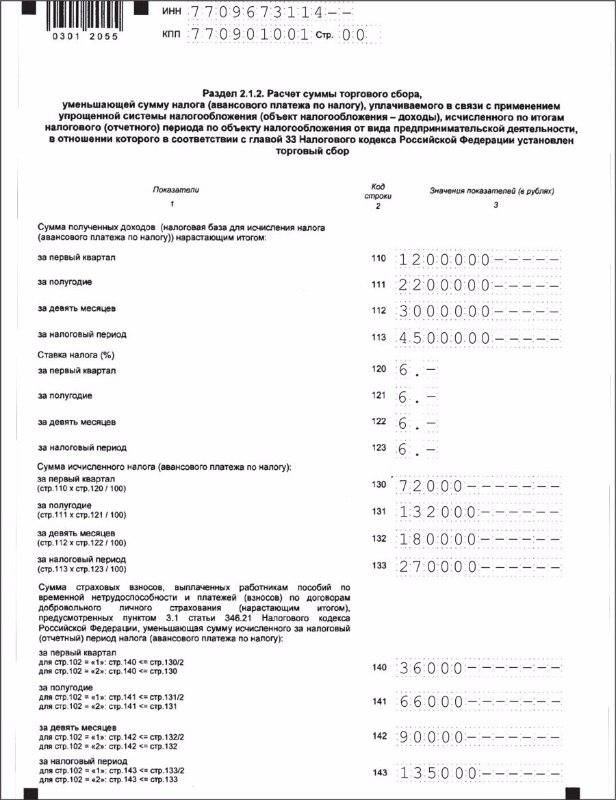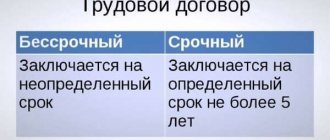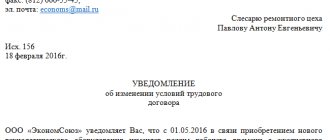REPRESENTATIVES OF THE PARTIES
A collective agreement is concluded between employees and employers represented by their representatives.
In accordance with Art. 29 of the Labor Code of the Russian Federation, representatives of employees when concluding a collective agreement are:
- primary trade union organization,
- other representatives elected by employees in cases provided for by the Labor Code of the Russian Federation.
https://www.youtube.com/watch?v=ytadvertiseru
According to Part 2 of Art. 29 of the Labor Code of the Russian Federation, the primary trade union organization or other representatives elected by employees represent the interests of employees when conducting collective negotiations, concluding or amending a collective agreement, monitoring its implementation, as well as when exercising the right to participate in the management of the organization and consideration of labor disputes with the employer.
The legal status of trade unions is determined by the Labor Code of the Russian Federation, as well as by the Federal Law of January 12, 1996 No. 10-FZ “On trade unions, their rights and guarantees of activity” (hereinafter referred to as the Law on Trade Unions).
Terms, signing and registration of the collective agreement
The maximum period for which a collective agreement can be concluded is three years. The parties have the right to extend the agreement for a period not exceeding three years. The collective agreement comes into force from the date of its signing by the parties or from the date specified in the agreement.
Signing a collective agreement is not mandatory , however, if an employee of an organization notifies the employer in writing of their intention to sign a collective agreement, the latter cannot avoid signing, otherwise this may be regarded as a violation of the provisions of the current labor legislation.
The drawing up of a collective agreement provides that after signing the latter is subject to mandatory registration . For this purpose, the contract, within a week after it was concluded, is sent to the relevant government labor agency. All changes and various additions that are made to the collective agreement must be made through appropriate collective bargaining.
Thus, based on the above, it should be noted that before drawing up a collective agreement, the parties should carefully consult with experienced and professional lawyers. Only in this case can you be sure that the collective agreement is drawn up in full compliance with legal norms and takes into account the interests of the parties as much as possible.
| Didn't find the answer? Ask your question to lawyers 8796 lawyers are waiting for you Quick response, |
The conditions for the payment of financial assistance and its specific amounts are approved by the collective agreement and local acts of the institution. The parties agreed to maintain the procedure for improving housing conditions for workers dismissed due to staff reductions, and over the years. When the number or staff of employees is reduced, priority right to remain at work is given to employees with higher labor productivity and qualifications.
Moreover, you only need to add the details of your organization and download the ready-made collective agreement. The primary trade union organization participates in employer-sponsored patronage of special educational institutions that train workers for enterprises, organizes and holds thematic meetings with students. In cases where several agreements apply to employees at the same time, the terms of the agreements that are most favorable for the employee are applied (Article 48 of the Labor Code of the Russian Federation). During vacation, wages are paid no later than days before the start of vacation.

When combining professions (positions) or fulfilling the obligations of temporarily absent employees without being released from their own main job, create additional payments.
Background
| The first collective agreement appeared in England. In Russia, the first such legal act was concluded in 1904 as a result of a strike of oil workers in the Baku fields. The strikers demanded an 8-hour working day and an increase in wages! from 25 to 50%, weekly rest, etc., and they managed to achieve victory on the main issues. This agreement did not last long, but played a very important role. In the period from 1905 to 1907. More than 20 collective agreements were concluded between entrepreneurs and workers of St. Petersburg, Moscow and other cities, and the first chamber for conciliation of conflicts between workers and entrepreneurs arose in Odessa. Nevertheless, cases of concluding collective agreements remained isolated. The normative regulation of collective agreements in our country began with the decree of the Council of People's Commissars of 07/02/1918, which approved the Regulations on collective agreements. It applied to all collective agreements that determined wages in all types and forms (daily, piece, monthly, lesson, bonuses, fees, etc.). The Regulations defined in detail the content of the contract, stipulating its most important sections, namely the procedure for hiring and dismissing workers, standardization of working hours, rates and principles of remuneration depending on the degree of professionalism of the workers, the nature and complexity of the work. In the USSR, collective agreements were concluded at all enterprises (state and private, existing before 1925) in the period from 1918 to 1932. They regulated mainly wages. With the introduction of a centralized tariff system of remuneration in 1932, collective agreements lost their significance and gradually ceased to be concluded. The practice of concluding collective agreements in our country resumed in 1947. |
All trade unions enjoy equal rights.
Persons who have reached the age of 14 and are engaged in labor (professional) activities have the right to create trade unions, join them, engage in trade union activities and leave trade unions. In accordance with paragraph 2 of Art. 2 of the Law on Trade Unions, this right is exercised freely, without prior permission.
Primary trade union organizations and their bodies represent the interests of employees - members of the relevant trade unions, and in cases and in the manner established by the Labor Code of the Russian Federation, the interests of all employees of a given employer (regardless of their membership in trade unions) during collective negotiations, concluding or amending a collective agreement, as well as when considering and resolving collective labor disputes between workers and the employer.

In what cases does an organization have another representative body of employees?
Another representative (representative body) of employees can be elected only in accordance with Art. 31 of the Labor Code of the Russian Federation in cases.
Case 1. The employees of this employer are not united in any primary trade union organizations.
Case 2. None of the existing primary trade union organizations unites more than half of the employees of a given employer and is not authorized to represent the interests of all employees at the local level.
Another representative (representative body) is elected from among the employees at the general meeting (conference) by voting.
At the same time, the presence of another representative cannot serve as an obstacle to the exercise by primary trade union organizations of their powers.
The employer's representative when concluding a collective agreement in accordance with Parts 1 and 2 of Art. 33 of the Labor Code of the Russian Federation is the head of the organization or persons authorized by him in the prescribed manner.
The validity of the collective agreement depending on the status of the organization
The usual duration of a collective agreement is from 1 to 3 years. Conducting collective negotiations to discuss a draft new agreement may affect the extension or shortening of this period:
- if the contract expires during collective negotiations, its validity is extended;
- during the reorganization of the company, the collective agreement remains in force unless one of the parties objects;
- when the owner changes, the force of the contract remains valid;
- If the company is liquidated, the agreement continues to be valid until the end of the procedure.
Personnel Dictionary
| A trade union is a voluntary public association of citizens bound by common production and professional interests in the nature of their activities, created for the purpose of representing and protecting their social and labor rights and interests (Clause 1 of Article 2 of the Law on Trade Unions). Primary trade union organization is a voluntary association of trade union members working, as a rule, in one organization, regardless of the form of ownership and subordination, acting on the basis of regulations adopted by it in accordance with the charter, or on the basis of general regulations on the primary trade union organization of the corresponding trade union (Article 3 of the Trade Union Law). Trade union body is a body formed in accordance with the charter of a trade union, association (association) of trade unions or regulations on the primary trade union organization. |
By the way
| Guarantees and compensation for persons participating in collective bargaining Persons participating in collective negotiations and the preparation of a draft collective agreement are released from their main work while maintaining their average earnings for a period determined by agreement of the parties, but not more than three months. All costs associated with participation in collective negotiations are compensated in the manner established by labor legislation and other regulatory legal acts containing labor law standards, a collective agreement, and an agreement. Payment for the services of experts, specialists and intermediaries is made by the inviting party, unless otherwise provided by the collective agreement or agreement. Representatives of workers participating in collective negotiations, during the period of their conduct, cannot, without the prior consent of the body that authorized them for representation, be subject to disciplinary action, transferred to another job or dismissed at the initiative of the employer, with the exception of cases of termination of the employment contract for committing an offense, for which, in accordance with the Labor Code of the Russian Federation and other federal laws, provides for dismissal from work. |
We invite you to familiarize yourself with: Land lease agreement with the right of purchase with an individual
Representatives of a party who have received a proposal in writing to begin collective bargaining are required to enter into negotiations within seven calendar days from the date of receipt of the proposal by sending a written response to the initiator of collective bargaining indicating representatives from their side to participate in the work of the collective bargaining commission and their powers.
In accordance with Art. 35 of the Labor Code of the Russian Federation, a commission is created in the organization to conduct collective negotiations, prepare a draft collective agreement and conclude it. This commission includes representatives of employees and employers on an equal basis.
The employer issues an order indicating the persons who will represent its interests in the collective bargaining commission.
Note! The start date of collective negotiations is the day following the day the initiator of collective negotiations receives a written response
Representatives of the parties participating in collective negotiations are free to choose issues related to the regulation of social and labor relations.
The timing, place and procedure for holding collective negotiations are determined by representatives of the parties participating in the negotiations.
The parties must provide each other no later than two weeks from the date of receipt of the relevant request with the information they have necessary for conducting collective bargaining.
Participants in collective bargaining and other persons associated with collective bargaining must not disclose information received if this information relates to a secret protected by law (state, official, commercial or other). Persons who disclosed the specified information are subject to disciplinary, administrative, civil, and criminal liability in the manner established by the Labor Code of the Russian Federation and other federal laws.
If during collective negotiations no agreed decision is made on all or individual issues, then a protocol of disagreements is drawn up. The settlement of disagreements that arose during collective negotiations on the conclusion or amendment of a collective agreement is carried out in the manner established by the Labor Code of the Russian Federation.
Collective negotiations have been going on in our organization for two months now, but the draft collective agreement still does not suit any of the parties. How long can disagreements be resolved?
If agreement is not reached between the parties on certain provisions of the draft collective agreement within three months from the date of the start of negotiations, the parties will be required to sign a collective agreement on the agreed terms and simultaneously draw up a protocol of disagreements.
Unsettled disagreements may be the subject of further collective negotiations or resolved in accordance with the Labor Code of the Russian Federation and other federal laws.
A collective agreement is concluded by representatives of the parties participating in collective bargaining in accordance with their powers. In addition, a collective agreement can be adopted at a general meeting (conference) of employees of an organization or an individual entrepreneur.
Who can conduct collective bargaining
Workers and employers or their representatives (for example, trade unions) have the right to be parties to the negotiation process. If the employer or the administration of the organization refuses or avoids participating in negotiations, the other party (trade union, etc.) has the right to open a collective labor dispute.
To conduct negotiations, conclude contracts or agreements, partners are endowed with equal rights.
Before the start of the process, an organization order is issued. The order, among other things, indicates the composition of the commission that will participate in the negotiations. The order also indicates the place where negotiations will be held.
If during negotiations the parties do not reach agreement on any issue, a protocol of disagreements must be prepared, which is subject to transfer to the conciliation commission. The deadline for completing negotiations is usually considered to be the date of signing the contract (agreement) or protocol of disagreements. The start of a collective labor dispute is usually considered to be the signing of a protocol of disagreements.
CONTENT AND STRUCTURE OF THE COLLECTIVE AGREEMENT
According to Art. 41 of the Labor Code of the Russian Federation, the content and structure of the collective agreement are determined by the parties.
Note! In accordance with Part 3 of Art. 41 of the Labor Code of the Russian Federation, in a collective agreement, taking into account the financial and economic situation of the employer, benefits and advantages for employees, working conditions that are more favorable in comparison with those established by laws, other regulations, agreements can be established
- forms, systems and amounts of remuneration;
- payment of benefits, compensation;
- a mechanism for regulating wages taking into account rising prices, inflation levels, and the fulfillment of indicators determined by the collective agreement;
- employment, retraining, conditions for releasing workers;
- working time and rest time, including issues of granting and duration of vacations;
- improving working conditions and labor protection for workers, including women and youth;
- respecting the interests of workers during the privatization of state and municipal property;
- environmental safety and health protection of workers at work;
- guarantees and benefits for employees combining work with training;
- health improvement and recreation for employees and members of their families;
- partial or full payment for food for employees;
- monitoring the implementation of the collective agreement, the procedure for making changes and additions to it, the responsibility of the parties, ensuring normal conditions for the activities of employee representatives, the procedure for informing employees about the implementation of the collective agreement;
- refusal to strike if the relevant conditions of the collective agreement are met.
What to choose?
Local regulations , as a rule, are adopted and approved by the employer without taking into account the opinions of employees, however, taking into account such opinions may be mandatory if this is expressly stated in the collective agreement. A local regulatory act cannot establish standards that indicate a worse position of the employee compared to other acts that speak about labor law standards.
The collective agreement, together with its annexes , is the product of the activities of both parties; its conclusion is very lengthy. Among other things, it must be registered, and this procedure involves the fact that it is checked by the relevant authority, which may propose changes.






